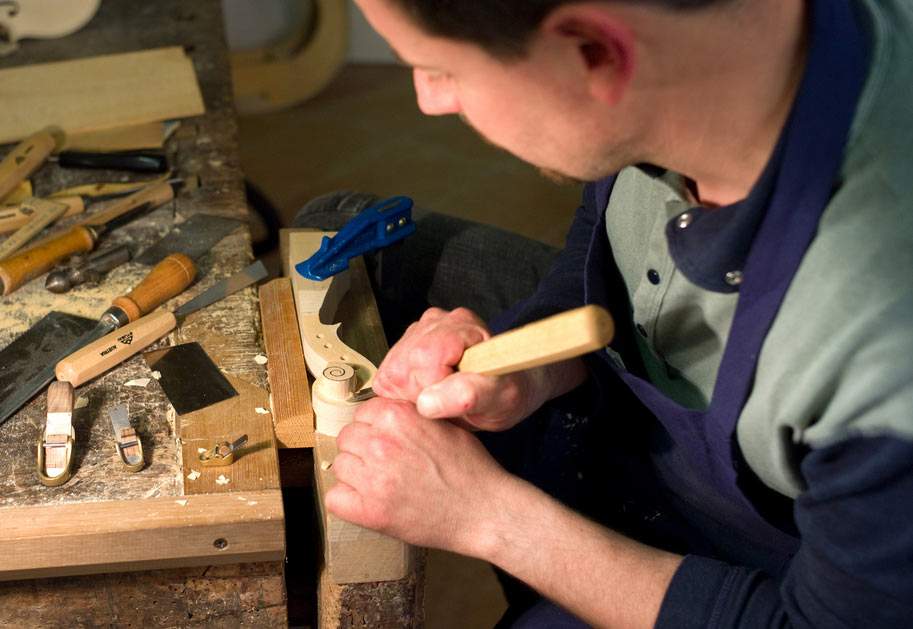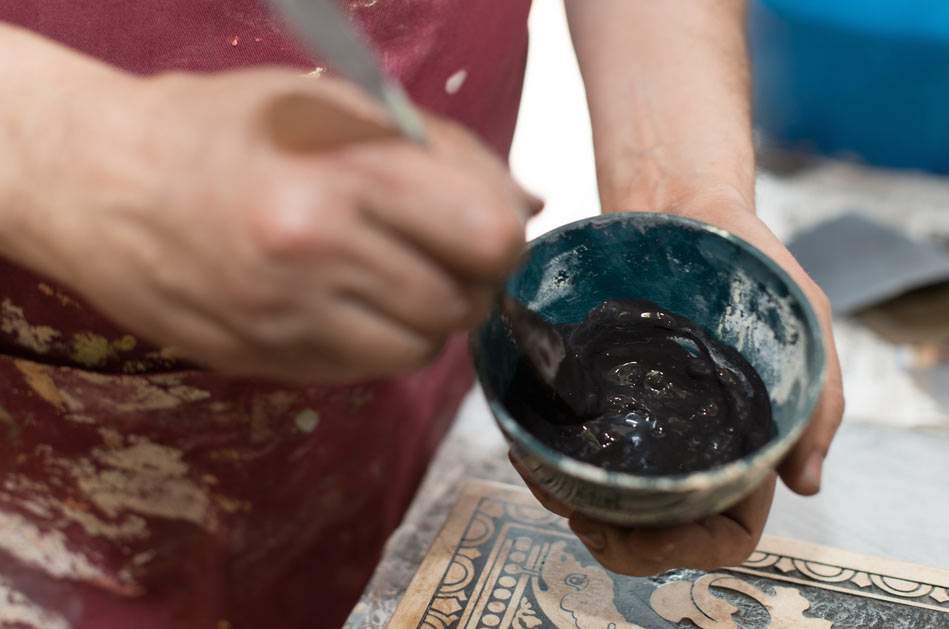The National Table of Artistic Craftsmanship, formed by the supporters of the International Charter of Artistic Craftsmanship (a programmatic document promoted by CNA, Confartigianato Imprese and Ateliers d’Art de France with the technical and organizational support of Artex, Center for Artistic Craftsmanship of Tuscany, launched in 2010 at the national and international level precisely to protect, promote and enhance the artistic and traditional handicraft sector), made an appeal to policymakers to ask them to support artistic handicrafts, a very important cultural and economic heritage that is now at great risk.
This sector represents an immense heritage, which has contributed to the definition of Made in Italy and Italy’s image in the world, and which now finds itself in a weakened situation due to the consequences of the containment measures imposed to cope with the Covid-19 epidemic by coronavirus. In this framework, the specific weight of Tuscany is very relevant: according to data processed by Artex in collaboration with Irpet, in Tuscany there are 20 thousand artistic and traditional handicraft enterprises, employing more than 100 thousand people, including employees and the self-employed. Of the 20 thousand enterprises, about 1,300 (6 percent) have more than 15 employees for 94 percent are small and micro companies very different in size, business organization, production techniques, styles but also in reference markets.
“There is a very strong concern for artistic and traditional handicrafts in Tuscany,” says Artex President Gianni Lamioni. “The economic consequences of the post-Covid19 crisis threaten to be fatal for many companies, and an even greater effort is needed at the local, national and European levels to protect the value of this heritage so that it is not dispersed. The excellences of the craft tradition are largely guarded by small and very small, family-run companies with little capitalization and therefore highly exposed in times of economic crisis both because of the uncertainty that crosses the reference markets and because of the characteristics of the production process that cannot disregard time-consuming processing techniques and the use of expensive raw materials. Artex has been pointing out for more than a decade the need for targeted and shared strategies to safeguard this enormous identity and economic heritage: it is since 2010, in fact, that with the International Charter of Artistic Craftsmanship, and with the network that has been built around it, we have been trying to affirm and spread the values of artistic craftsmanship, as a fundamental component of our economy, our culture and our society. It is a creative and economic heritage that defines Tuscany’s identity more than any other, and at a time when we are talking about the revival, not only of production, but also of our region’s image in the eyes of the international public, investors and tourists, it cannot be forgotten. We need to take action to identify the right marketing and internationalization strategies for our artistic craftsmanship; we need to enhance its opportunities in the context of the green economy and sustainable development; we need to exploit its potential in the dialogue with the world of culture, museums and education; and we need to make it a pillar in the promotion and development actions of the Italian tourism system.”
“Artistic craftsmanship,” points out Stefano Ciuoffo, councilor for economic development of the Region of Tuscany, “is a sector that has always held high the name of Tuscany in the world, a sector deeply rooted in our territories, an expression of a culture and tradition that have been consolidated over the centuries. For this reason, the Region of Tuscany has always had particular attention and sensitivity for this sector, and precisely for this reason it shared, supported and promoted from the beginning the path of the International Charter of Artistic Craftsmanship, also acting as its spokesperson to other regional governments. In the current context of crisis, the appeal of the supporters of the Charter, which emphasizes the fundamental values of artistic craftsmanship and indicates possible lines of development and strengthening of the sector, sees us in agreement and attentive, especially in a logic of revitalization of our territory. Artistic craftsmanship is part of our cities, our villages, our museums, our production system, our social fabric, and it can and must become an integral part of actions to relaunch the image of Tuscany in the world, in close connection with tourism, with culture, with food and wine, with everything that constitutes the heart of Made in Tuscany.”
Below is the text of the appeal.
 |
The serious state of the current crisis, a consequence of the Coronavirus emergency, threatens to negatively affect, in a very heavy way, the entire Italian economic, productive and entrepreneurial system, causing the loss of thousands of jobs. In this complex and worrying context, the sector of artistic and traditional craftsmanship is unfortunately in a situation of extreme fragility, putting at risk also the survival of a very important cultural heritage, traditions and techniques handed down for centuries, which have contributed largely to the definition of Made in Italy and the image of Italy in the world.
The representatives of the National Table of Artistic Craftsmanship, formed by the supporters of the International Charter of Artistic Craftsmanship-programmatic document launched in 2010 at the national and international level precisely to protect, promote and enhance the sector of artistic and traditional craftsmanship-want to turn the spotlight on this specific sector of the Italian economy that requires special attention.
At the end of Q1 2019, the total number of artisan enterprises in the artistic and traditional handicraft sector was 288,302 with 801,001 employees: representing 22.2 percent of artisan enterprises and 28.2 percent of the number of employees in the national handicraft sector (the data refer to the sectors of artistic work established by Presidential Decree 288/2001).
The weight of the sector is therefore significant, but even more important are the peculiar characteristics that make artistic craftsmanship a basic element of the Italian economy and manufacturing; a constituent factor of the identity, traditions and culture of places; a fundamental component of the tourist offer of our territories; and a creative industry that can give much to the young generations in search of a professional and entrepreneurial path. These very peculiarities make it necessary to have targeted strategies and policies that take into account the complexity and potential of the world of artistic and traditional handicrafts.
The Craft Charter attributes three fundamental values to artistic craftsmanship that cannot be ignored by decision makers. It represents a fundamental economic and productive resource made up of micro-enterprises, of workshops rooted in the territories; it constitutes a unique cultural heritage that is the result of a centuries-old artistic and productive tradition, a repository of knowledge even in relation to very different cultural sectors; and finally, craftsmanship influences the social fabric, creates employment, social stability, and sustainable economic development.
The National Table of Artistic Handicrafts proposes a careful reflection and hopes for special attention from decision makers for this sector that is so important in the definition of our identity and our knowledge and know-how that is at the same time also so fragile, due to the size of the companies, the reference markets, and the characteristics of the production process that cannot disregard time-consuming processing techniques and the use of expensive raw materials.
This reflection should take place around a few main themes, which see artistic craftsmanship at the center of a network of relationships and interactions with other economic, cultural and social resources in our country, with the aim of arriving at shared planning and lines of action that can support the sector in this phase of great crisis and great change in our world, not only productive.
The themes and possible lines of action that should be developed, in a constant and fruitful sharing relationship with policy makers and administrators, are the following:
Artistic Craftsmanship and Made in Italy: strategies and opportunities for commercialization and internationalization of Italian artistic and traditional productions in the new global context;
Artistic Crafts and the Circular Economy: the role and opportunities for the sector in the context of the green economy and in the strategies of sustainable development that respects the environment and production ethics;
Artistic Crafts , Culture and Education: the potential of artistic craftsmanship in relation to the world of culture, with particular reference to the integrated offer of museums and the world of education and training;
Artistic Craftsmanship , tourism and territory: the sector as a fundamental factor in the construction of future strategies for the promotion and development of the Italian tourism system, with particular reference to integrated territorial policies and projects.
The objective of the reflection path described above is the creation of medium- and long-term strategic lines that will bring artistic craftsmanship back to the center of the national economic and cultural scene, but also the identification of possible short-term actions that can give concrete answers to companies and workshops in difficulty.
Supporters of the International Charter of Artistic Craftsmanship.
Confartigianato Imprese Federazione Artistico; CNA Artistico e Tradizionale; Artex, Centro per lArtigianato Artistico e Tradizionale della Toscana; Artigianarte; Associazione Fatti ad Arte; Associazione Italiana Città della Ceramica; Associazione Osservatorio dei Mestieri d’Arte - OMA; Pandora Artiste Ceramiste Association; Villa Fabris Association; Fondazione Cologni dei Mestieri dArte; Istituto Superiore ad Indirizzo Raro Caselli - De Sanctis and Real Fabbrica di Capodimonte; IVAT- Institut Valdôtain Artisanat de Tradition; Museo Civico della Ceramica di Nove Giuseppe De Fabris.
 |
| An appeal for arts crafts, in crisis due to virus. Artex: "Need to support art crafts." |
Warning: the translation into English of the original Italian article was created using automatic tools. We undertake to review all articles, but we do not guarantee the total absence of inaccuracies in the translation due to the program. You can find the original by clicking on the ITA button. If you find any mistake,please contact us.